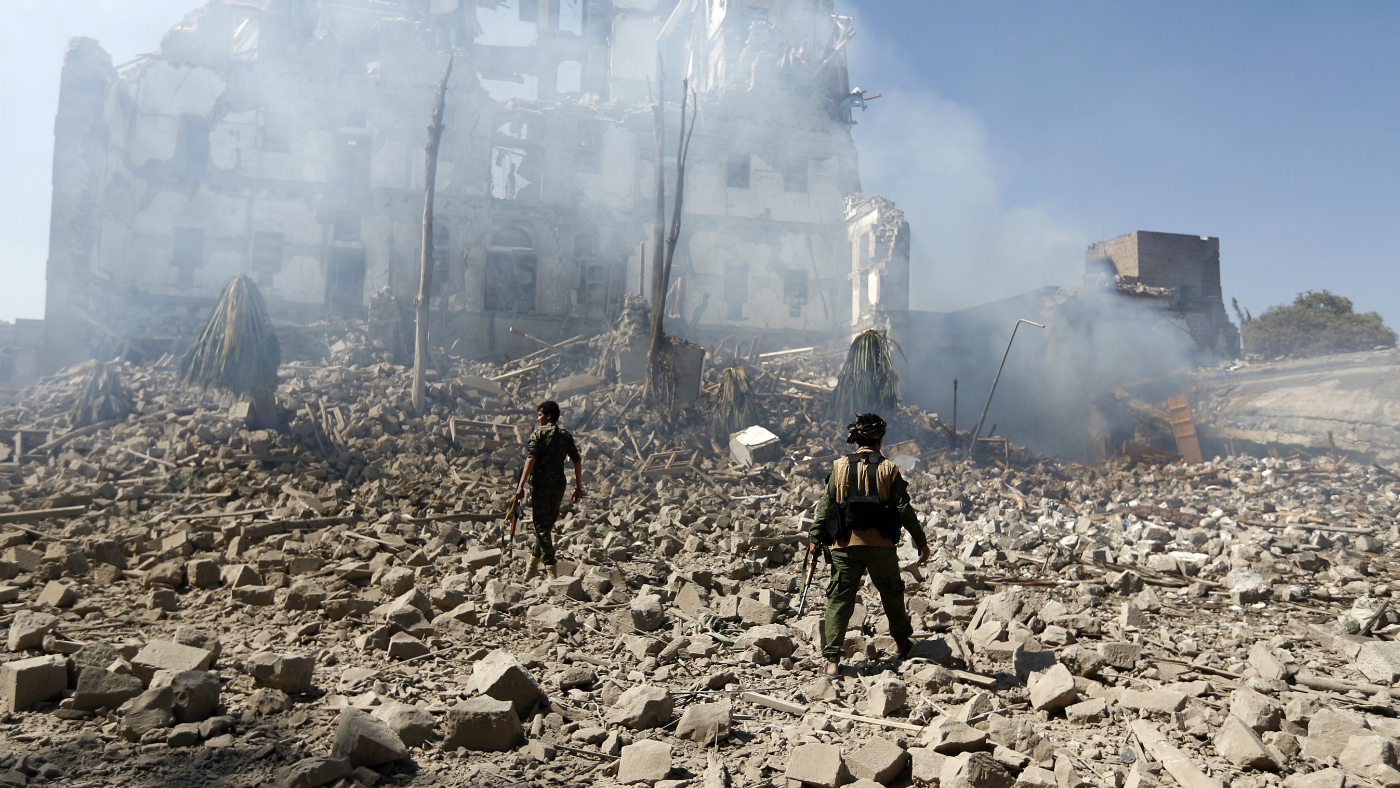UK may be complicit in Yemen war crimes, says UN
Experts say Western powers could be held responsible for horrors of the conflict

A free daily email with the biggest news stories of the day – and the best features from TheWeek.com
You are now subscribed
Your newsletter sign-up was successful
The UK, US and France may be complicit in war crimes in Yemen, UN experts have said.
According to a new report, the three Western powers could be held responsible for aiding or assisting the commission of crimes because they provide arms and other support to the Saudi-led coalition backing Yemen's government.
In a scathing report, the experts detail “air strikes on civilian infrastructure, indiscriminate shelling, snipers, landmines, as well as arbitrary killings and detention, torture, sexual and gender-based violence, and the impeding of access to humanitarian aid in the midst of the worst humanitarian crisis in the world”.
The Week
Escape your echo chamber. Get the facts behind the news, plus analysis from multiple perspectives.

Sign up for The Week's Free Newsletters
From our morning news briefing to a weekly Good News Newsletter, get the best of The Week delivered directly to your inbox.
From our morning news briefing to a weekly Good News Newsletter, get the best of The Week delivered directly to your inbox.
The panel argues: “States are obliged to take all reasonable measures to ensure respect for international humanitarian law by other states. Furthermore, the Arms Trade Treaty, to which France and the United Kingdom are parties, prohibits the authorisation of arms transfers with the knowledge that these would be used to commit war crimes.”
They continue: “The legality of arms transfers by France, the United Kingdom, the United States and other states remains questionable, and is the subject of various domestic court proceedings.”
The Guardian says the UN report will “very likely be used as further evidence for those demanding that the British government end arms sales to Saudi for use in Yemen”.
However, a UK government spokesperson said: “The UK has been at the forefront of international efforts to bring a diplomatic solution to the appalling conflict in Yemen. We operate one of the most robust export control regimes in the world.”
A free daily email with the biggest news stories of the day – and the best features from TheWeek.com
Minister have previously claimed they cannot determine whether any civilian deaths have been the result of British arms or jets because the coalition does not track their use.
In Washington, the US government has insisted that continuing arms sales to the coalition is more likely to help limit civilian casualties.
The four-year conflict has claimed the lives of at least 7,290 civilians and left 80% of the population - 24 million people - in need of humanitarian assistance or protection.
-
 Epstein files topple law CEO, roil UK government
Epstein files topple law CEO, roil UK governmentSpeed Read Peter Mandelson, Britain’s former ambassador to the US, is caught up in the scandal
-
 Iran and US prepare to meet after skirmishes
Iran and US prepare to meet after skirmishesSpeed Read The incident comes amid heightened tensions in the Middle East
-
 Israel retrieves final hostage’s body from Gaza
Israel retrieves final hostage’s body from GazaSpeed Read The 24-year-old police officer was killed during the initial Hamas attack
-
 China’s Xi targets top general in growing purge
China’s Xi targets top general in growing purgeSpeed Read Zhang Youxia is being investigated over ‘grave violations’ of the law
-
 Panama and Canada are negotiating over a crucial copper mine
Panama and Canada are negotiating over a crucial copper mineIn the Spotlight Panama is set to make a final decision on the mine this summer
-
 Why Greenland’s natural resources are nearly impossible to mine
Why Greenland’s natural resources are nearly impossible to mineThe Explainer The country’s natural landscape makes the task extremely difficult
-
 Iran cuts internet as protests escalate
Iran cuts internet as protests escalateSpeed Reada Government buildings across the country have been set on fire
-
 US nabs ‘shadow’ tanker claimed by Russia
US nabs ‘shadow’ tanker claimed by RussiaSpeed Read The ship was one of two vessels seized by the US military


